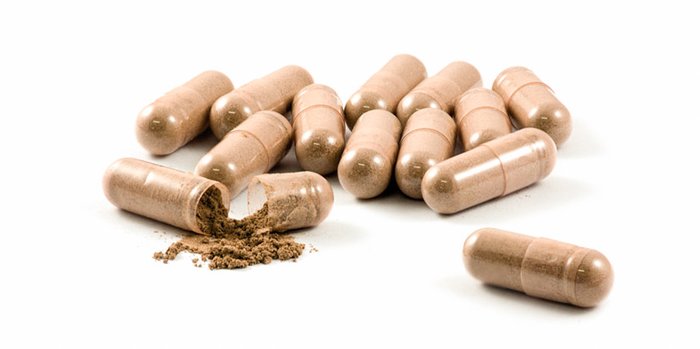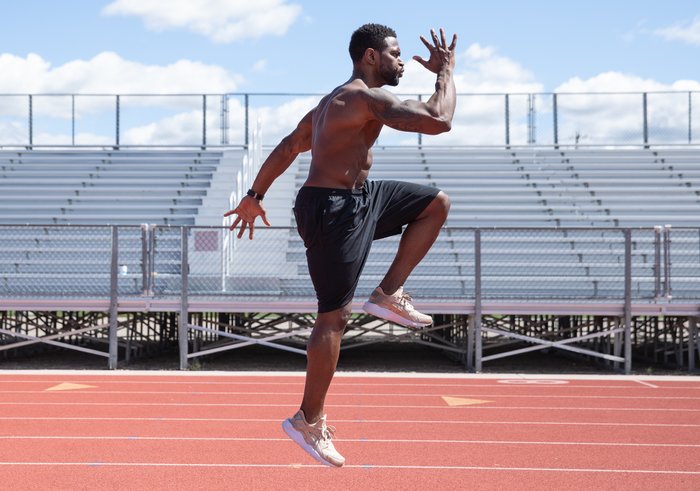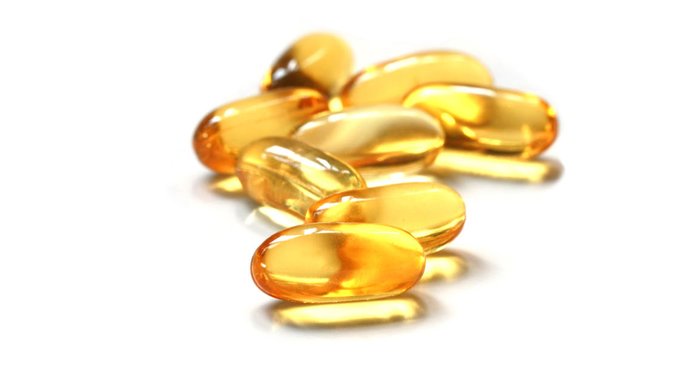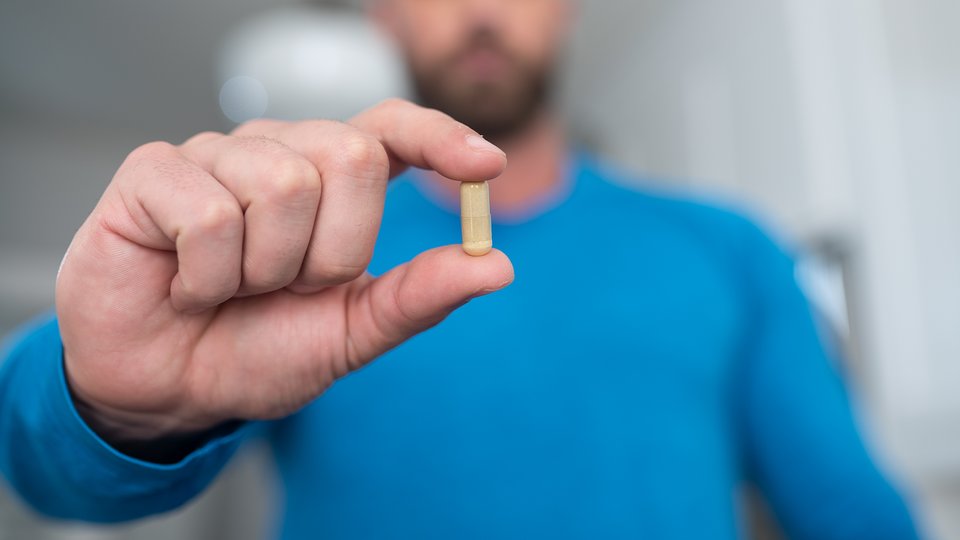Products You May Like
Nootropic supplements and smart ingredients. These words keep being brought up in conversations surroounding the supplement industry, but that’s for good reason! Not only do these supplements potentially help with focus, mental clarity, and memory, they can potentially help improve physical performance! What’s not to love about that?!
In another article on Bodybuilding.com, “Double Duty: 6 Supplements That Aid Brain Function as Well as Performance,” it discussed several ergogenic substances, meaning supplements that enhance physical performance, stamina, and recovery. The article also explored how those ergogenics can be used to optimize brain energy and mental performance. Many of them, such as creatine, are well researched because of their effects on the body. The same is true for numerous nootropic supplements, which were designed to optimize mental performance.
Let’s look at some well-studied nootropics that also have physical-performance-enhancing effects.
Choline as an Ergogenic
The Institute of Medicine has classified choline as an essential nutrient. One of choline’s main uses supports cognitive function via the cholinergic system, a signaling system that uses the neurotransmitter acetylcholine and is responsible for neuromuscular function. Scientists have been looking at the cholinergic system since the term “nootropic” was first coined in the mid-1970s.[1] During that time, Dr. Corneliu E. Giurgea synthesized a compound called piracetam, which interacted with the cholinergic system to promote memory and learning ability.[2,3]
Numerous cholinergic compounds have been developed, isolated, or studied to support cognitive performance since then, and many support physical performance, as well.

1. Alpha GPC
One of the most efficient choline sources (by weight) is alpha-glycerophosphocholine.[4] A-GPC has been used to support mental energy for many years, but several studies also suggest a role in physical performance.* Today, it is a cornerstone of many popular nootropic stacks.
A 2008 pilot study reported that A-GPC supplementation could increase power output, measured by peak force, by 14 percent.[5] It also noted changes in growth hormone secretion, a response that would likely support muscle recovery and growth.*
A more recent study of 13 males found that isometric strength could be increased with only six days of A-GPC supplementation, and a 2017 study found benefits for mechanical power and psychomotor performance.[6,7] The authors of the latter concluded, “Based upon this evidence, and previous evidence regarding A-GPC, it should be considered as an emerging ergogenic supplement.”*
A-GPC may be of interest to athletes for a few reasons. For one thing, its cognitive effects are well studied, so A-GPC could be considered a “two birds with one stone” supplement. The dose range for enhancing physical performance in the scientific literature is 250-600 milligrams per day, which is what you get in many nootropic-based products, and the side effects seem minimal, especially when dosed at the lower end of this range.
2. Citicoline (CDP Choline)
Similar to A-GPC, citicoline, aka CDP choline, is another source of raw choline but with some unique properties. For example, CDP converts into uridine, which on its own supports aspects of cognitive performance.*

A-GPC has been the subject of the most ergogenic research of any choline-containing nootropic, but a 2019 study of 75 participants found that citicoline (in the form of Cognizin) aided motor speed in healthy adults.[8] Because sports such as football, soccer, and lacrosse rely heavily on motor speed, this research suggests a fit for citicoline as a sports nootropic.*
3. Choline Bitartrate
The nootropics community considers A-GPC and citicoline to be the best choline supplements for improving cognition, in part because they are thought to be more bioavailable and require lower doses. But choline bitartrate at higher doses may also have a role in supporting the communication between the nervous system and muscles, and as a result, physical performance.
Two grams of choline bitartrate taken 70 minutes before visuomotor testing led to improved coordination and visual acuity. With the added acetylcholine, the body improved the balance between speed and accuracy.[9]*
Nootropics That Boost Physical Performance
Beyond the cholinergic compounds, numerous substances improve other biomarkers that athletes may find valuable.
4. Phosphatidylserine
Phosphatidylserine is a vital molecule for cognitive function because it is part of our cell structure and maintenance of cell function. It’s also a nutrient that acts a bit like an adaptogen, promoting a healthy stress response.*
A study published in the Journal of the International Society of Sports Nutrition found that phosphatidylserine could be helpful to athletes undergoing exercise-induced stress, as it blunted the increase in cortisol commonly seen with moderate activity.[10] Another study found that the combination of phosphatidylserine and caffeine could lessen the perception of fatigue in only 14 days.[11] For endurance athletes, that may be especially important. Phosphatidylserine may help improve performance during events (reduced perception of fatigue) and aid rapid recovery after practices.*
5. DHA (Fish Oil)
A 2013 study in the American Journal of Clinical Nutrition found that participants who had a low dietary intake of omega-3 essential fatty acids, such as DHA, saw improved reaction time when they took 1.16 grams of DHA per day.[12] Since many people don’t get a lot of omega-3 fatty acids in their diet, this finding is relevant to a fairly large percentage of the population.

Experts recommend an omega-6-to-omega-3 fatty acids ratio of 1:1 or 2:1. Unfortunately, most American diets fall in the range of 10:1 to 25:1.[13,14] To put that in perspective, my own ratio was 4:1 the last time I was tested, which is still not in the optimal range despite my eating fish, taking fish oil supplements, and eating lean wild game meat.
Though the link between DHA and enhanced athletic performance needs further study, optimizing this fatty acid may be highly advantageous for brain and body energy.*
6. Pycnogenol
Beyond its many cognitive advantages, there’s some evidence that pycnogenol can support athletic performance as well. A study in The Journal of Sports Medicine and Physical Fitness concluded that pycnogenol could support normal subjects and semi-pro athletes during physically demanding activities such as a triathlon.[15] * The study was broken into two parts, with subjects getting doses of 100 milligrams per day and 150 milligrams per day of pycnogenol. The lower dose was studied for fitness performance, using the Army Physical Fitness Test, while the higher dose was used by triathletes training for and participating in a race. In both settings, and at both doses, supplementation led to better performance. Most notably in the triathletes, the pycnogenol group experienced “significant decrease in cramps and running and post-running pain,” along with “faster recovery.” For endurance athletes, pycnogenol may not only support performance but also make competing more comfortable.*
*These statements have not been evaluated by the Food and Drug Administration. This product is not intended to diagnose, treat, cure, or prevent any disease.
References
-
Giurgea, C. (1972) Pharmacology of integrative activity of the brain. attempt at nootropic concept in psychopharmacology. Actualites pharmacologiques, 25, 115-56.
-
Waegemans, T., Wilsher, C. R., Danniau, A., Ferris, S. H., Kurz, A., & Winblad, B. (2002). Clinical efficacy of piracetam in cognitive impairment: a meta-analysis. Dementia and Geriatric Cognitive Disorders, 13(4), 217-224.
-
Dimond, S. J., & Brouwers, E. Y. M. (1976). Increase in the power of human memory in normal man through the use of drugs. Psychopharmacology, 49(3), 307-309.
-
Khosrow Tayebati, S., Tomassoni, D., Ejike Nwankwo, I., Di Stefano, A., Sozio, P., Serafina Cerasa, L., & Amenta, F. (2013). Modulation of monoaminergic transporters by choline-containing phospholipids in rat brain. CNS & Neurological Disorders-Drug Targets (Formerly Current Drug Targets-CNS & Neurological Disorders), 12(1), 94-103.
-
Ziegenfuss, T., Landis, J., & Hofheins, J. (2008). Acute supplementation with alpha-glycerylphosphorylcholine augments growth hormone response to, and peak force production during, resistance exercise. Journal of the International Society of Sports Nutrition, 5(S1), P15.
-
Bellar, D., LeBlanc, N. R., & Campbell, B. (2015). The effect of 6 days of alpha glycerylphosphorylcholine on isometric strength. Journal of the International Society of Sports Nutrition, 12(1), 42.
-
Marcus, L., Soileau, J., Judge, L. W., & Bellar, D. (2017). Evaluation of the effects of two doses of alpha glycerylphosphorylcholine on physical and psychomotor performance. Journal of the International Society of Sports Nutrition, 14(1), 39.
-
McGlade, E., Agoston, A. M., DiMuzio, J., Kizaki, M., Nakazaki, E., Kamiya, T., & Yurgelun-Todd, D. (2019). The effect of citicoline supplementation on motor speed and attention in adolescent males. Journal of Attention Disorders, 23(2), 121-134.
-
Naber, M., Hommel, B., & Colzato, L. S. (2015). Improved human visuomotor performance and pupil constriction after choline supplementation in a placebo-controlled double-blind study. Scientific Reports, 5, 13188.
-
Starks, M. A., Starks, S. L., Kingsley, M., Purpura, M., & Jäger, R. (2008). The effects of phosphatidylserine on endocrine response to moderate intensity exercise. Journal of the International Society of Sports Nutrition, 5(1), 11.
-
Wells, A. J., Hoffman, J. R., Gonzalez, A. M., Stout, J. R., Fragala, M. S., Mangine, G. T., … & Robinson IV, E. H. (2013). Phosphatidylserine and caffeine attenuate postexercise mood disturbance and perception of fatigue in humans. Nutrition Research, 33(6), 464-472.
-
Stonehouse, W., Conlon, C. A., Podd, J., Hill, S. R., Minihane, A. M., Haskell, C., & Kennedy, D. (2013). DHA supplementation improved both memory and reaction time in healthy young adults: a randomized controlled trial. The American Journal of Clinical Nutrition, 97(5), 1134-1143.
-
Simopoulos, A. P. (1991). Omega-3 fatty acids in health and disease and in growth and development. The American Journal of Clinical Nutrition, 54(3), 438-463.
-
Kris-Etherton, P. M., Taylor, D. S., Yu-Poth, S., Huth, P., Moriarty, K., Fishell, V., Hargrove, R.L., Zhao, G. & Etherton, T. D. (2000). Polyunsaturated fatty acids in the food chain in the United States. The American Journal of Clinical Nutrition, 71(1), 179S-188S.
-
Vinciguerra, G., Belcaro, G., Bonanni, E., Cesarone, M. R., Rotondi, V., Ledda, A., Hosoi, M., Dugall, M., Cacchio, M. & Cornelli, U. (2013). Evaluation of the effects of supplementation with Pycnogenol® on fitness in normal subjects with the Army Physical Fitness Test and in performances of athletes in the 100-minute triathlon. Journal of Sports Medicine and Physical Fitness, 53(6), 644-654.
